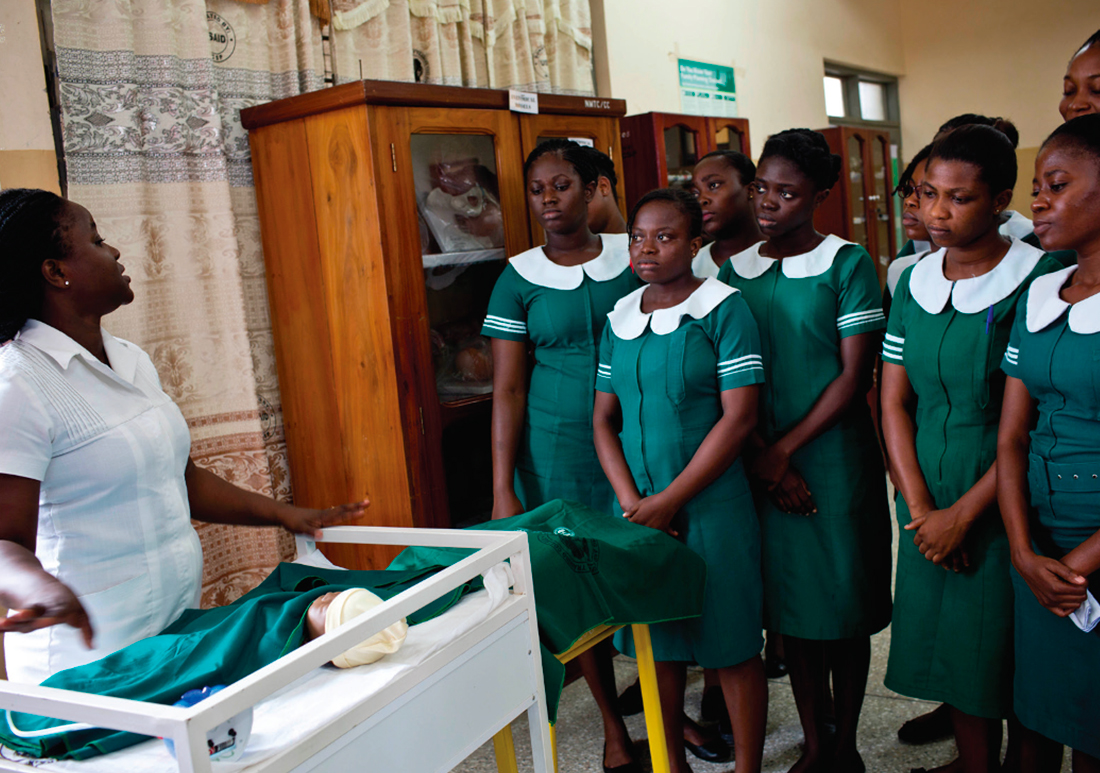
Investing in pre-service training is a particularly sustainable approach to improve the quality of nutrition services and to prepare frontline health workers to deliver high-quality nutrition services effectively. This requires collaboration among government ministries, academic institutions, professional associations, funders, and technical experts.
In March 2023, USAID Advancing Nutrition gathered stakeholders to discuss strategies for improving nutrition content of pre-service training for health workers in Bangladesh, the Democratic Republic of Congo, Ghana, Malawi, Mozambique, and the Kyrgyz Republic. Over 100 stakeholders participated in a virtual consultation to address challenges and opportunities in this crucial area, and strengthen country commitment and capacity for nutrition.
The consultation yielded a number of recommendations to strengthen the nutrition content included in pre-service curricula, including—
- strengthening collaboration between stakeholders (e.g., government Ministries of Health and Education, universities, and professional associations) when reviewing pre-service curricula
- ensuring nutrition content of pre-service training aligns with policies, needs, job descriptions, and competencies outlined in job descriptions
- proposing curriculum reviews examine both nutrition content and training methods to strengthen results
- monitoring professional performance for quality nutrition service delivery
- leveraging regional and international knowledge and learnings to close gaps and strengthen the nutrition content of pre-service training.
To achieve these recommendations, a call to action was issued to stakeholders:
- Ministries of health should lead in coordinating the technical review of pre-service curricula, aligning national policies with global goals, and developing nutrition pre-service training programs.
- Ministries of education should work in close collaboration with Ministries of Health to coordinate technical review and oversee training institutions to ensure the quality of course syllabi and teaching methods.
- Universities and training institutions should review nutrition content in pre-service courses, engage students in research to expose them to current research findings in health and nutrition, and offer field-based training opportunities.
- Professional associations should monitor the effectiveness of nutrition content in pre-service training and provide continuous professional development opportunities.
- Donors, implementing partners, and international organizations should support sharing of best practices among in-country professionals, providing resources and technical assistance, and developing guidelines for adoption.
By implementing these recommendations through collaborative efforts and political commitment we can ensure the integration of nutrition into pre-service education and the delivery of quality nutrition services to communities.